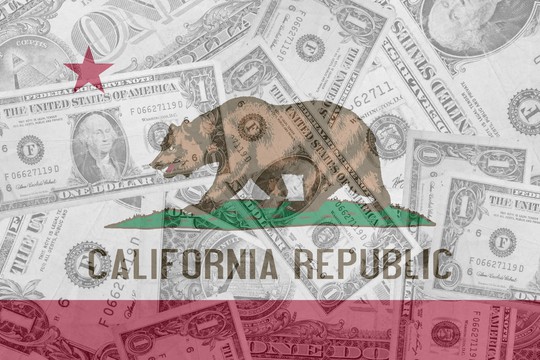California's default – the recent decision not to pay back some $20 billion borrowed from the federal government to cover unemployment benefits during the pandemic will fall on the shoulders of employers.
"The state should have taken care of the loans with the COVID money it received from the government in 2021," said Marc Joffe, policy analyst at the Cato Institute — a public policy think tank headquartered in Washington, D.C., in a statement
"California is just not really an employer-friendly state," said Joffe. "This one thing will not be a difference between a business remaining open or closing, but it’s just another burden on top of the many burdens the state puts on employers."
In total, 22 states borrowed money for unemployment insurance from the federal government. All but four, California, Colorado, Connecticut, and New York, have paid back their debts – with California owing the most by far at $18.6 billion as of May 2, followed by New York at $8 billion, Connecticut at $187 million and Colorado at $77 million, according to data from the US Treasury.
Exacerbating the situation were unprecedented levels of fraud occurring across the state, due to limited oversight and antiquated computer systems, according to Lee Ohanian, professor of economics at the University of California – Los Angeles. “We’ve made a lot of bad decisions and we expect the rest of the country to pay for it,” he said. “It also raises questions about the future: If the state is going to default on the $20 billion federal loans, how safe are municipal bonds from California?”
Analytics firm LexisNexis estimated the total cost of the fraud at $32.6 billion. Investigations have since uncovered that illegitimate unemployment benefits payments were paid to convicted felons, with one address receiving 60 separate fraudulent payments.
Unbeknownst to many Californians, they are now finding themselves financially responsible for the state’s nearly $20 billion federal loan default, which was taken out to address California’s unemployment fund deficit during the COVID pandemic, writes ‘The Atlas News’.
The reality of this responsibility came to light when the state ceased making payments on the loan. According to federal law, when a state defaults on a federal unemployment insurance loan, its businesses must repay the debt. The default is further exacerbated by the outdated IT system of California’s Employment and Development Department (EDD), which enabled more than $30 billion in fraudulent unemployment claims during the pandemic.
The state had several chances to pay off the debt, including a roughly $100 billion budget surplus the previous year, $27 billion in federal COVID assistance, and a budget record of $300 billion-plus for 2022-2023. The state might have resumed payments this year despite failing, lowering the tax burden on businesses as intended in the 2023-24 budget. The state has reneged on its promise to resume payments or offset rising company federal unemployment insurance fees, though, as its financial outlook deteriorates.
California is one of four states that have not serviced their debts out of the 22 states that received federal unemployment loans during the pandemic. Among these four states, California owes $27.5 billion (almost two-thirds of the total) in unpaid federal unemployment insurance as of the previous year.
read more in our Telegram-channel https://t.me/The_International_Affairs

 11:11 11.05.2023 •
11:11 11.05.2023 •























